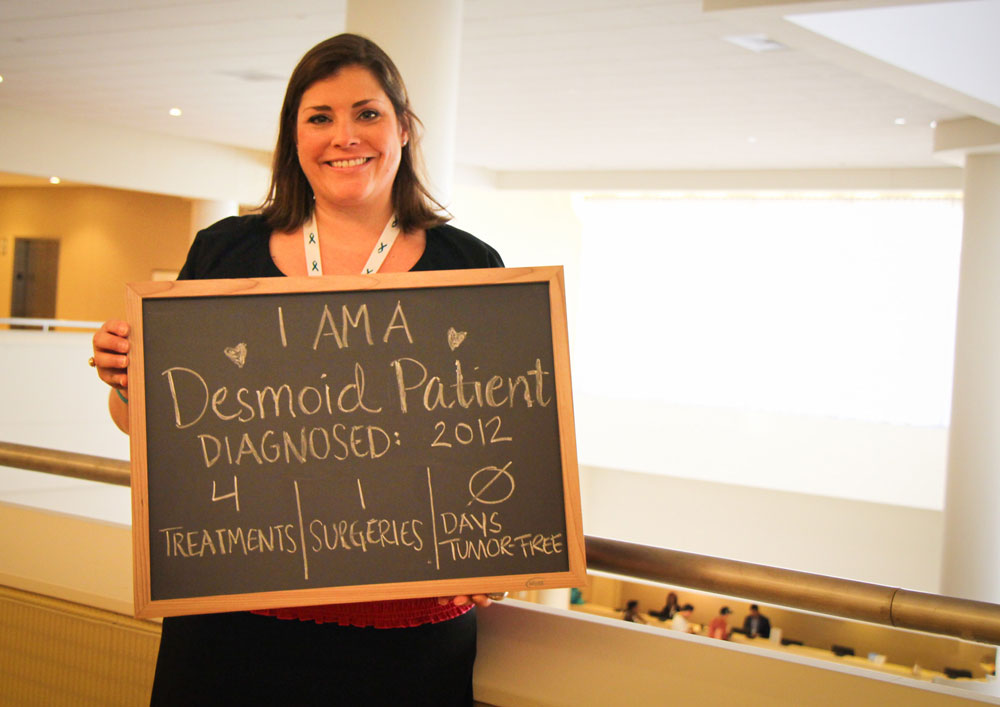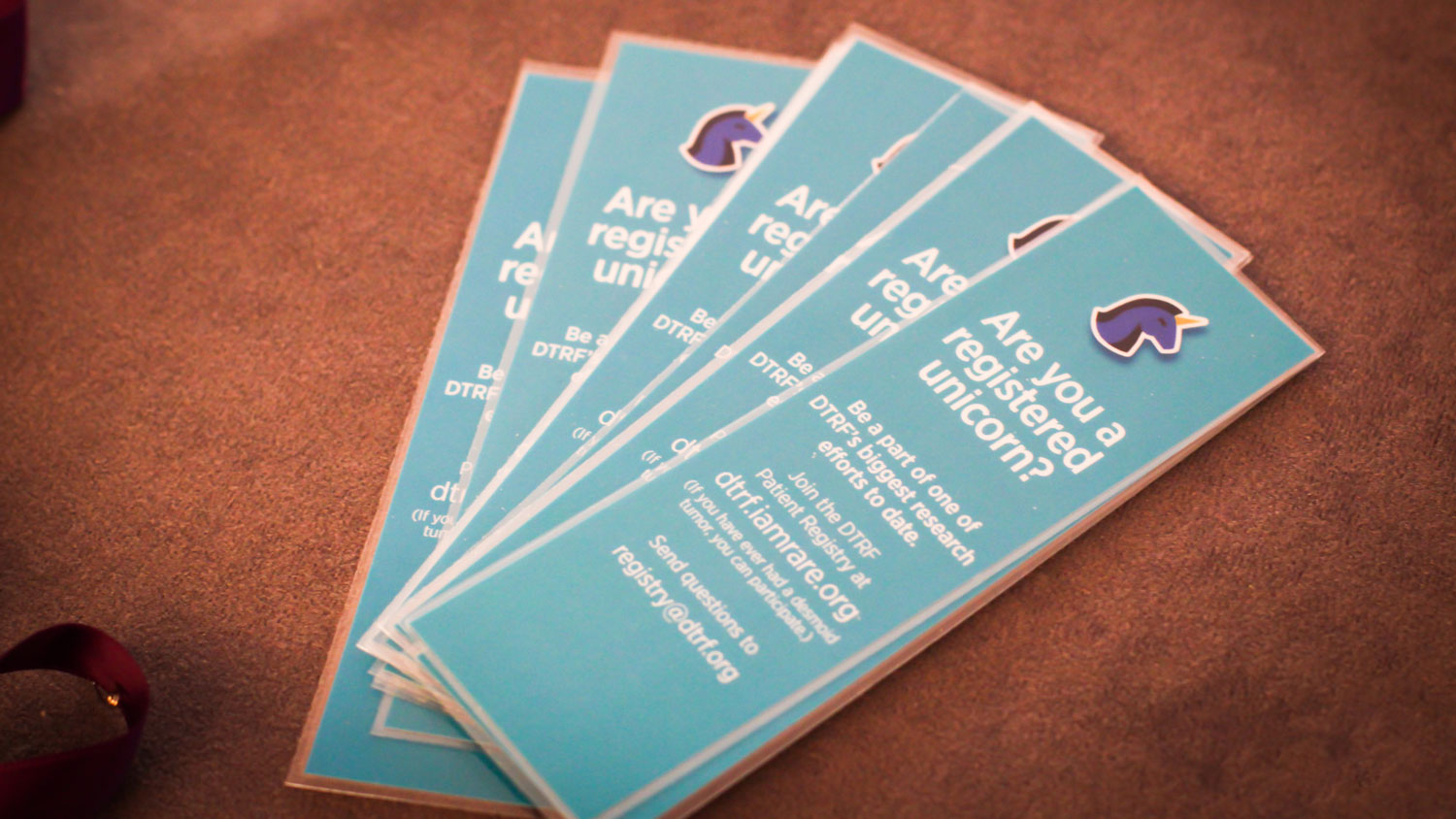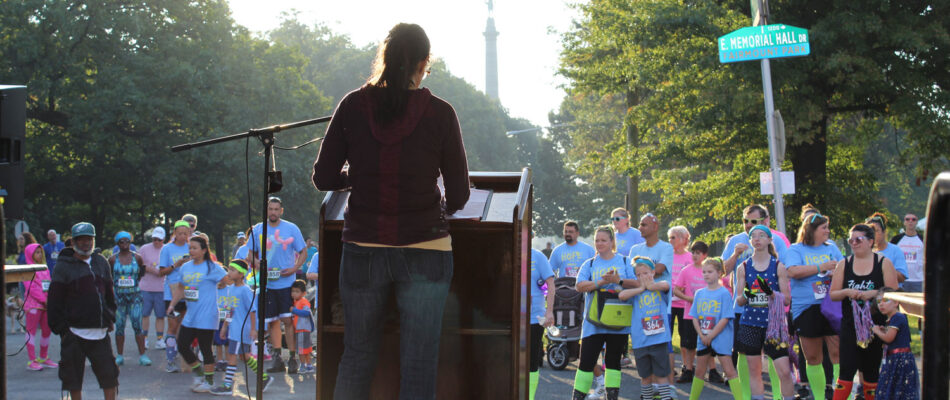
The Desmoid Tumor Research Foundation (DTRF) Patient Registry is a dynamic participant-driven resource to empower and unite the desmoid tumor community through shared knowledge. This online platform includes information from individuals living with desmoid tumors. The Registry is a cooperative project with the FDA and National Organization for Rare Disorders (NORD).
If you would like to participate, visit DTRF.iamrare.org. Once you enroll in the Registry, you will be guided to complete surveys about your own disease experiences. These surveys and the de-identified data they collect comprise what is known as the Natural History Study (NHS). Once you complete a survey, you can learn about other participants’ experiences by viewing the aggregated survey data. The ultimate goal is to help better understand patient experiences with desmoid tumors so researchers can understand the disease process and work toward better treatment options.
What is a Registry?
Community Involvement
The DTRF Patient Registry and Natural History Study are powerful opportunities for individuals with desmoid tumors and their family members to contribute directly to research that will enhance our understanding of desmoid tumors. These data may facilitate the development of new diagnostic and treatment options. Participation is especially vital given the rarity of desmoid tumors — every patient experience is a unique and invaluable part of the natural history of desmoid tumors.
Who Can Participate?
If you have ever had a desmoid tumor, you can participate. If you are the guardian or caregiver of anyone who has ever had a desmoid tumor, you can register and complete surveys on their behalf. The data is de-identified to maintain privacy and confidentiality. Participation in the DTRF Patient Registry and Natural History Study is free and voluntary, and participants may withdraw at any time.

How to Start
- Set up an account at DTRF.iamrare.org
- Complete the online surveys
- We hope that you’ll complete all surveys available to you, answering as many questions as possible, but you don’t have to do it all at once! We encourage you to complete what you can, save your progress, take a break, and return to the surveys again later.
Thank you for actively taking part in this research! Email us at registry@dtrf.org with any questions.
Natural History Study September 2024 Update
“An Update on the DTRF Natural History Study – September 2024”
with Kelly Mercier, PhD
Recorded at the 2024 DTRF Patient Meeting
Frequently Asked Questions
A patient registry is an online data system that systematically collects, stores, and retrieves patient data for analysis in research studies. The DTRF Patient Registry:
- Provides a convenient online platform for patients or their legally authorized representative to report cases of desmoid tumors
- Conducts a prospectively planned natural history study that will result in the most comprehensive understanding of desmoid tumors and their progression over time
- Characterizes and describes the desmoid tumor community as a whole
- Assists the medical community with recommendations for standards of care
- Assists researchers studying the pathophysiology of desmoid tumors
- Supports clinical trial designs that explore new desmoid tumor treatments
The DTRF NHS collects and analyzes the following types of data:
- Socio-demographics
- Medical and diagnostics
- Treatment and disease progression
- Management of care
- Quality of life
The primary aim of the Desmoid Tumor Research Foundation (DTRF) Patient Registry at DTRF.iamrare.org (link) is to conduct a prospectively-planned and efficient natural history study (NHS) that will result in the most comprehensive understanding of the disease and its course and pace over time.
The DTRF Patient Registry follows strict government guidelines to assure patient information is protected. The registry platform is hosted by NORD on their secure servers. Communication between the registry platform application server and the database is encrypted.
Video Resources
For those new to desmoid tumors
Watch as Kelly Mercier, PhD, explains the DTRF Patient Registry and Natural History Study and how they relate to one another. Also covered is why it’s important to participate and how to get started.
“DTRF Patient Registry & Natural History Study 101”
with Dr. Kelly Mercier
For current Patient Registry participants
Watch as Kelly Mercier, PhD explains the difference between survey updates and retakes, and why retakes are so important right now
“Patient Registry and Natural History Study Retakes & Updates”
with Dr. Kelly Mercier
From our amazing community of supporters
“
“For me, and for many other desmoid patients, the biggest frustration has always been the lack of information in the medical community about how to treat the disease…I am so excited for this registry…The more of us that participate, the more valid and robust the data! It also helps tremendously to know that despite the fact that we suffer from a rare disease, we are not alone. I can see the [anonymous] results from other participants and see how our experiences compare. It also comforts me to know that by sharing my experience, I may be able to help other desmoid patients that may have never met anyone with the disease.”
Tiffany
US
“
“I completed the surveys because I want to find a cure. With so few patients diagnosed, we need every bit of data to help researchers learn what causes the tumors, what the disease progression is, and what treatments are effective. We all hear anecdotal stories from other patients, but until we pool the data in a consistent way, little can be learned of how best to treat those diagnosed after us and find a cure. The surveys are easy to complete and the benefit to finding a cure is enormous! There are no right or wrong answers, only your answers, your experiences, to share with researchers. Sharing our story is the unique contribution we as patients can make toward a cure.”
Kate
US
Continue Exploring

The DTRF Newsletter
Join the DTRF community! We carefully curate our bi-weekly newsletter to highlight upcoming events, the latest desmoid tumor progress, research updates, and patient care advances!